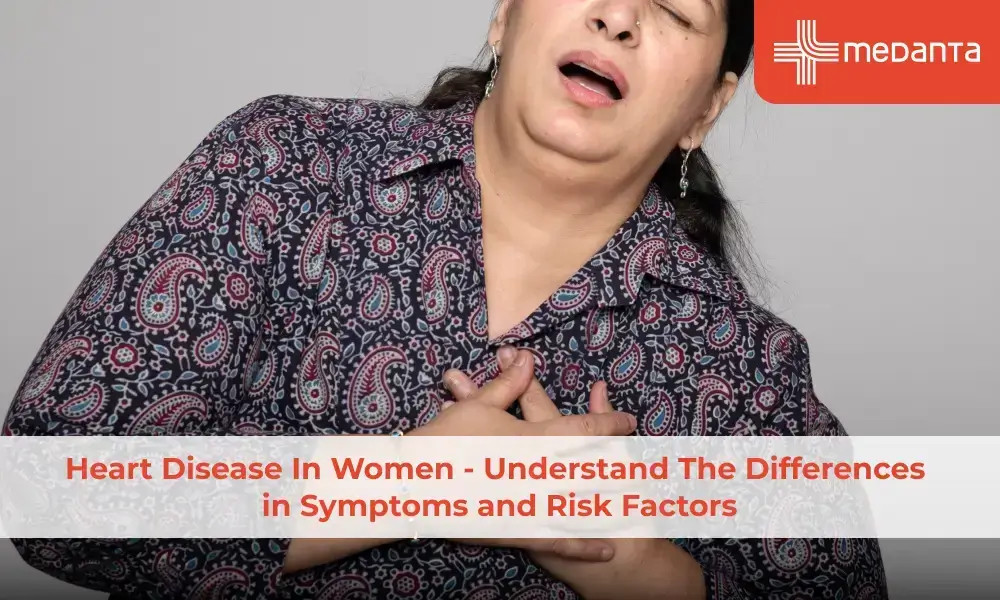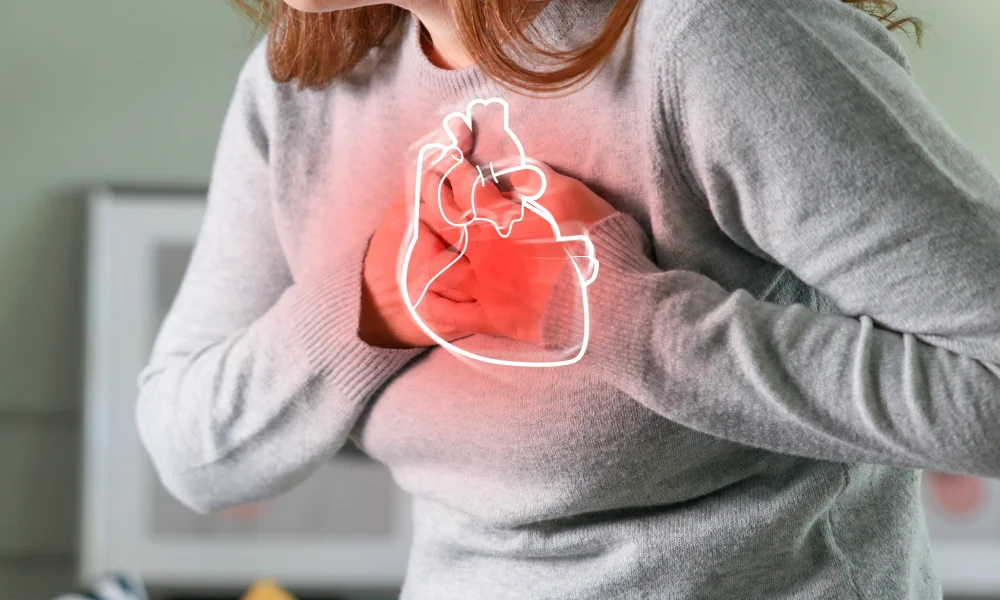Heart Disease In Women - Understand The Differences in Symptoms and Risk Factors

TABLE OF CONTENTS
Heart disease has been conventionally considered a problem that primarily affects men. However, heart disease remains the most common cause of death for both men and women. Cardiovascular diseases in women remain underdiagnosed and undertreated because of this attitude.
The evaluation of heart disease symptoms in women is challenging because the presentation of symptoms may not be typical. Some heart disease symptoms in women differ from those of men. However, a lot of signs are the same.
Women have smaller blood vessels and heart Chambers, and the walls of their ventricles are thinner. Women also generally have few red blood cells and cannot function as effectively to carry oxygen at any given time. Changes in body position can also affect women more than men leading to women feeling more symptoms of fainting or dizziness with cardiovascular insufficiency. The differences in hormones such as estrogen and progesterone dominate women and can also impact heart health and overall health.
So what are the heart attack symptoms for women?
The most common symptoms of a heart attack in women are the same as that in men: chest discomfort or a feeling of chest pain or pressure that lasts more than a few minutes.
However, chest pain may not be the most severe or noticeable symptom in women and men. The sensation is described by women mainly as a feeling of tightness or fullness in the chest or a sense of pressure building. Women may experience a heart attack with simply these symptoms without significant pain, as is common in males.
Here is a list of symptoms that women mostly report:
Chest fullness or pressure
Discomfort in the neck, jaw, shoulder, upper back, and belly
Feeling like vomiting
Pain that spreads to the arms or pain that is localised to the arms
Sweating
Unusual tiredness or fatigue
The feeling of indigestion or heartburn
Nausea vomiting
The symptoms in women may be milder and may not be as noticeable as the severe chest pain experienced by a man undergoing a heart attack. One reason is that women tend to have blocks in the main vessels and smaller vessels that supply blood to the heart. In medical terms, this is known as coronary microvascular disease.
Women may also experience the symptoms more often while resting or when asleep. Emotional stress can also play a significant role in triggering heart attack symptoms in women. Emotional stress can cause the vessel supplying blood to the muscles of the heart to contract in what is known as vasospasm and mimic the symptoms of a heart attack.
Symptoms common in both genders include:
Chest discomfort or a feeling of pressure or pain
Pain that radiates to the neck, shoulder, back, arm, or jaw
Dyspnea or difficulty breathing
Nausea or vomiting sensation
Breaking into cold sweats
Feeling dizzy
Symptoms that are more common in women include:
Milder symptoms as described above
A sudden feeling of weakness or shortness of breath or feeling ill without chest pain
Mild discomfort in the back, chest, arm, jaw, or neck

What are the risk factors for heart disease in women?
The traditional risk factors for heart disease, such as high blood pressure, high cholesterol, high blood sugar or smoking, can affect everyone, including men and women. However, some risk factors are more unique to women and put payment at higher risk.
Being overweight or obese - Women are particularly prone to developing obesity as they pass through menopause, leading to a gain in abdominal fat, which is linked heavily with the risk of a heart attack.
High cholesterol levels - Lower HDL or good cholesterol levels are more commonly linked to two problems for women than for men after they reach 65.
Diabetes - Women with diabetes are considered more likely to develop heart disease than men with diabetes. A significant risk involved with diabetes is that it alters the way women feel pain, which can lead to women experiencing a silent heart attack.
Older age - Women generally tend to live longer than men, so the risk of heart disease increases.
Emotional stress and depression - Emotional anxiety and depression are known to affect the heart of women more than men. Depression may also lead to a lack of a healthy lifestyle and inconsistency in following recommended treatment courses.
Higher blood pressure - Women above 60 are more likely to have a high blood pressure than men and are less likely to have it under control. Women are considered twice as likely to die from hypertension. High blood pressure also looks more closely at women's heart attacks than men's.
Smoking - Smoking affects the hearts of women more than it affects the hearts of men and is considered more dangerous for women in light of cardiovascular health.
Lack of exercise - Lack of exercise and general activity daily may negatively affect women's cardiovascular health.
Inflammatory diseases - Pregnancy, hormonal changes, and stress play a significant role in the development of inflammatory or autoimmune diseases such as rheumatoid arthritis and lupus, which are known to increase the risk of developing heart diseases.
Sleep apnea affects both men and women, but it leads to a higher risk of hypertension, coronary artery disease, stroke, and atrial fibrillation in women.
Preeclampsia and pregnancy-associated complications: Preeclampsia is a complication of pregnancy that can significantly increase the risk of a person developing high blood pressure or high blood sugar later in life.
Gestational diabetes is a condition that doubles the risk of a person developing diabetes in the four months after delivery.
Menopause - Low estrogen levels after menopause increase the risk of developing heart disease in smaller blood vessels.
Polycystic ovarian syndrome - PCOS is known to raise a person's cardiovascular risk and chances of developing other conditions such as diabetes, high blood pressure, high cholesterol, and sleep apnea.
Oral contraceptive pills - Oral contraceptive pills, especially in combination with other risk factors such as obesity or smoking, can increase a person's risk of cardiovascular disease






